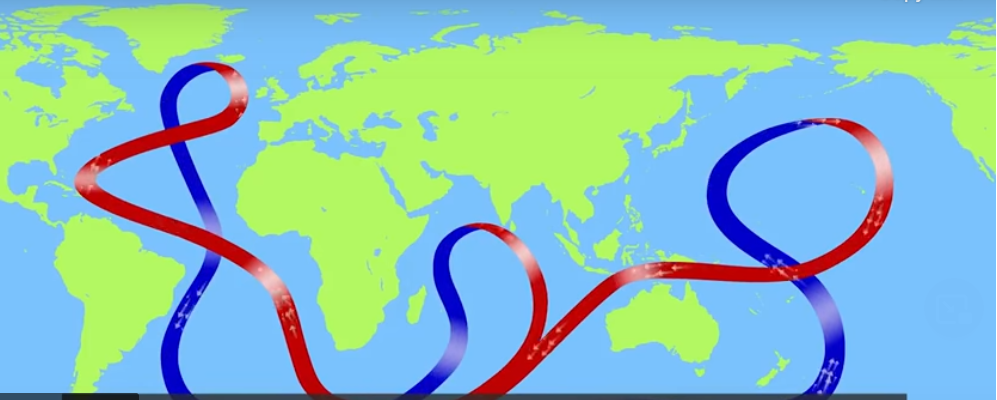
#ClimateCrisis: New study shows Gulf Stream on “verge of collapse”
New research, published in Nature Climate Change, has found “an almost complete loss of stability over the last century” of the ocean currents known as AMOC or more commonly the Gulf Stream. The currents are already at their slowest point for 1,600 years. But scientists worry that AMOC could be reaching a tipping point, leading to a total collapse.

C: Met Office
On Monday, the world’s top climate scientists from the Intergovernmental Panel on Climate Change (IPCC) will release their latest assessment of the state of the global climate.
It is eagerly awaited, as the IPCC’s reports are only published every seven years, and the last one was produced in 2013. It is no small undertaking, having being authored by 234 scientists, who will cite over 14,000 academic publications up until the end of January this year.
Climate activist, scientists, and journalists are already worried about the severity of the impacts outlined by the IPCC:
As the IPCC prepares its next highly-anticipated assessment of global warming, @GernotWagner speaks to @NaomiOreskes about the inherent conservatism of climate science and economics. https://t.co/z16rjq6rzD via @business
— Jeff Nesbit (@jeffnesbit) August 6, 2021
Listening to an embargoed briefing on the upcoming IPCC report and IT’S BAD Y’ALL. Get ready to cry on Monday. Then get ready to turn the fuck up even more.
— Lauren Maunus (@LaurenMaunus) August 5, 2021
The IPCC report is likely to make grim reading. Since 2013, our climate emergency has quickened apace. Every day nearly brings news of fresh flooding, fires, heatwaves, and more alarming science.
This week is no exception. Greece and Turkey are on fire, with both countries braced for a fourth day of wildfires today. Thousands of locals and tourists have had to be evacuated.
The situation remains critical. There are 56 active fires in Greece and in Turkey, at least eight people have been killed in the fires, which are seen as the worst in living memory.
But one piece of startling news is that scientists have detected the early signs in the collapse of the Gulf Stream as it becomes more unstable.
The melting of Greenland’s vast ice-sheets is slowing down what is called the Atlantic Meridional Overturning Circulation or (AMOC), which is an ocean conveyor belt that carries warm water from the tropics northwards into the North Atlantic. It directly affects the weather in North America and Europe. AMOC is so important it has been labelled the “world’s pulse.”
Scientists have long worried that if it slowed down or stopped it would cause real problems.
According to the British Met Office: “An AMOC shutdown would cause cooling of the northern hemisphere, sea level rise in the Atlantic, an overall decrease in precipitation over Europe and North America, and a southwards shift in monsoons in South America and Africa.”
Years ago, with loads of poetic license, Hollywood extrapolated the shutting down of AMOC into the film, The Day After Tomorrow.
And now it seems reality is catching up. The new research, published in Nature Climate Change, found “an almost complete loss of stability over the last century” of the currents that make up AMOC. They are already at their slowest point for 1,600 years. AMOC could be reaching a tipping point, leading to a total collapse.
The paper added: “A collapse from the currently attained strong to the weak mode would have severe impacts on the global climate system and further multi-stable Earth system components.”
In non-scientific terms, the Guardian outlined how bad things could get. “Such an event would have catastrophic consequences around the world, severely disrupting the rains that billions of people depend on for food in India, South America and West Africa; increasing storms and lowering temperatures in Europe; and pushing up the sea level off eastern North America. It would also further endanger the Amazon rainforest and Antarctic ice sheets.”
“The signs of destabilization being visible already is something that I wouldn’t have expected and that I find scary,” Niklas Boers, from the Potsdam Institute for Climate Impact Research in Germany, who did the research. Boers told the Guardian. “It’s something you just can’t [allow to] happen.”
